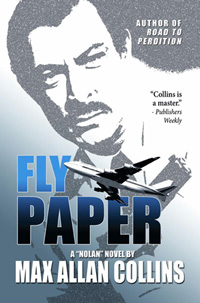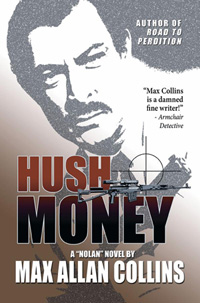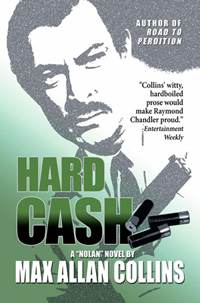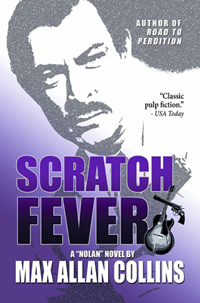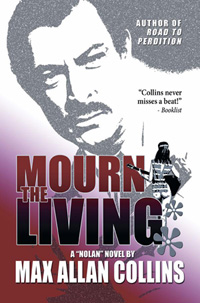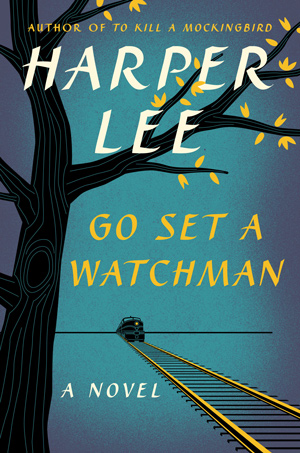
I have read around 100 pages of Harper Lee’s GO SET A WATCHMAN, and frankly don’t know if I’ll get any farther in it.
The writing certainly has at least occasional flair, though the use of point of view isn’t to my liking – suddenly jumping into another character’s POV for a while, and then back again, is an amateur ploy. The secondary characters aren’t particularly compelling, and the dialogue is often precious. But what’s really wrong with the novel is that it has no discernible plot. Unlike its famous predecessor, TO KILL A MOCKINGBIRD (like I had to tell you), there’s no murder trial to provide an engine to the small-town nostalgia set pieces.
MOCKINGBIRD is not a particular favorite of mine. I read it when it came out, in my youth, and have seen the fine film version a couple of times. But it’s not a novel that resonated with me so deeply that I named a child “Atticus” much less became expert in the prose style of its one-hit wonder author.
Mickey Spillane used to cite Lee and Margaret Mitchell as examples of “authors,” when explaining the difference between authors and writers, considering himself a prime example of the latter. An author wrote a book or two, a writer made a living at it and produced a shelf of work.
I take special interest in WATCHMAN because of my role as Mickey’s literary executor. I’m frankly surprised that there’s been as little fuss over just how much material Mickey left behind and just how much of it I’ve prepared for publication. But I do have a special context for seeing how reviewers and commentators have responded to WATCHMAN.
First of all, most of what has been written about the novel has been nonsense. Few have reviewed it on its own terms (the only way to review a novel properly). Many have speculated about whether or not Harper Lee truly gave permission for this early work to be published (though she clearly has). Many talk about the publishing industry in ways that reveal they know nothing about how publishing works, much less novel writing.
The biggest piece of misinformation is that WATCHMAN is a rough draft of MOCKINGBIRD. No. Not even close. It’s a different book about the more famous novel’s principal characters, set twenty years later. Its theme is finding out a beloved parent has feet of clay, and that’s valid enough. WATCHMAN has also been called a sequel or even a prequel. Here we’re getting warmer.
MOCKINGBIRD is the prequel to WATCHMAN. Some sources indicate that Lee and her publisher intended WATCHMAN to be published (and presumably somewhat rewritten) as the third book in a trilogy about these characters. Whether any real work was done on book two, and what that book would have been, is currently withheld. My guess, and it’s just a guess, is that Lee is one of those writers whose initial success sent her spiraling into a life-long writer’s block. Or in Mickey’s terms, an author’s block….
People seem terribly confused that the second book chronologically was written first. But writers (and even authors) know that’s ridiculous – that books in a series or saga can be written in whatever order the writer damn well chooses. My novels STOLEN AWAY and DAMNED IN PARADISE are chronologically the first in the Nathan Heller series; but they were published (and written) as books five and eight respectively.
On the other hand, WATCHMAN should have received a polish that brought it more in line with MOCKINGBIRD (there’s a major inconsistency about the murder trial in MOCKINGBIRD when referenced in WATCHMAN, for example). But the editors were too intimidated by Lee’s reputation to fix such things, and she is apparently not in any shape to do any writing or even editing herself (or if she is, isn’t interested).
Should the book have been published? Many say no. I say, “Hell, yes.” So far I don’t particularly care for the thing, but Harper Lee is a major author, and this is a second book about the famous characters in MOCKINGBIRD, and it makes a very interesting point about putting parents on pedestals.
But the book is a flawed, early work, apparently intended originally for revision so that it could be published after MOCKINGBIRD. So the bestseller approach that Harper (the publisher, not the author) has taken can be seen as at best inappropriate and at worst sleazy.
WATCHMAN deserved a publication that was more respectful of its history and the state it’s in – a scholarly introduction or after word, for example, to explain the context and the importance of the work, however flawed. To present it as just the “new” Harper Lee novel seems designed to make a lot of money while alienating the very readers who are pumping that money in.
Presented as more of an historical artifact, WATCHMAN still would have sold very well, and it would have received a more fair judgment by the public, the press and reviewers.
The Hon Company in my hometown of Muscatine, Iowa, is a very successful office-furniture manufacturer. My Dad worked for them for many decades, and I think he would have been proud of my appearance on this Hon-distributed piece on “7 Facts About Muscatine.”
There’s a Nate Heller story in the new anthology, CHICAGO NOIR, which recently got a starred review from Publisher’s Weekly.
Here’s a nice review of the Nolan novel, HUSH MONEY.
And here’s a nice bit about the “Nat” Heller novels.
M.A.C.
